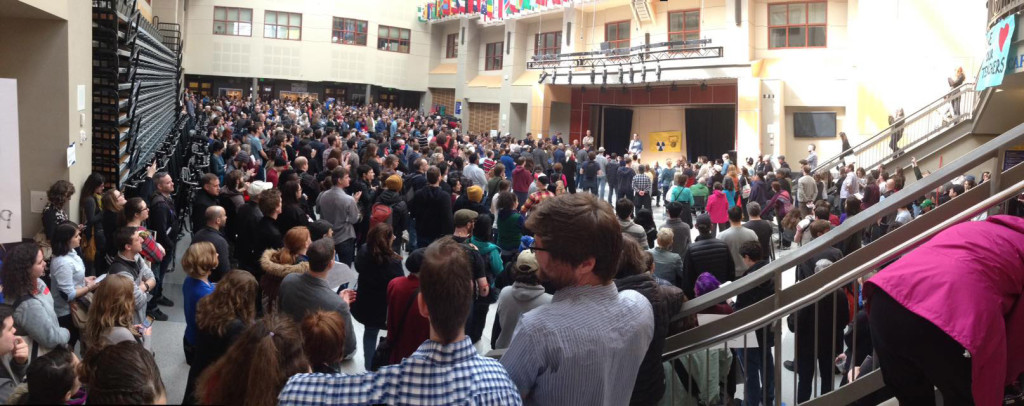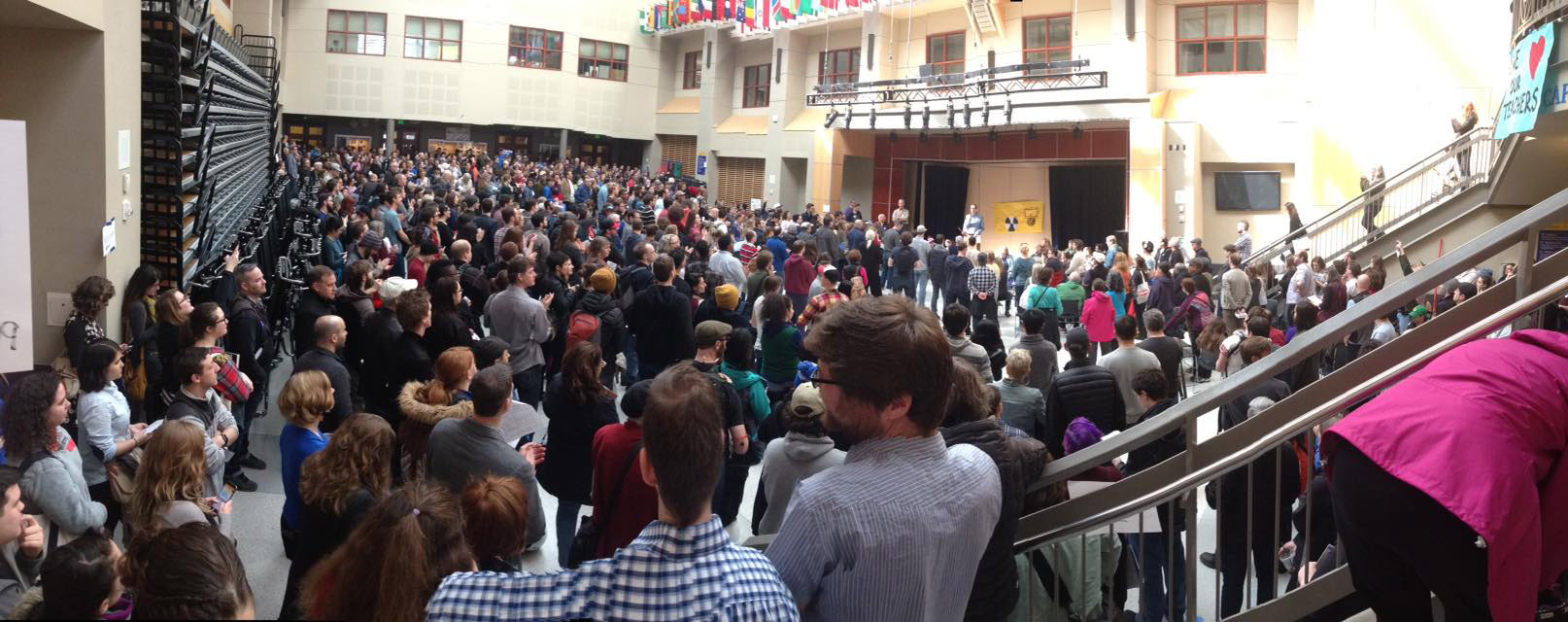Democracy stands on the virtue of equal representation but the results of last month’s Democratic Party caucus in Washington led some voters to think otherwise. A majority of the 17 superdelegates continued to endorse Hillary Clinton despite her huge loss to Bernie Sanders among voters—illustrating the discrepancy of the power of the people versus power of their representatives.
Seattle University political science lecturer Julian Gottlieb attended a caucus last month at Town Hall where roughly 900 people showed up to cast their vote. He said people at his location were inquisitive and receptive to other voters.
“I praise the virtues of the caucus system,” Gottlieb said. “People at my location enjoyed having the conversation, even if they weren’t there to change their mind. They had questions to ask and wanted to know what the candidates had to offer.”
There are two voting methods in this country: caucus and primary. At a caucus, voters gather at an appointed time and location to discuss the merits of each candidate. They cast their votes by raising hands or separating into groups and then voting. The final tally decides the distribution of delegates. Caucuses are significant because they allow voters to openly voice their support of a candidate, a process otherwise known as “deliberative democracy.” Today, according to the Federal Election Commission, there are 10 states that rely solely on a caucus system.
A primary, in contrast, is much more common. While 13 states in the U.S. use the caucus system, 22 use primaries. It’s a simple election process where voters directly decide on candidates and delegates by casting a secret ballot.
Washington is a caucus state. More specifically, we are an open caucus state, meaning voters don’t have to specify which political party they’re affiliated with to participate.
Gottlieb conceded that there are issues with this method of voting. He sees the situation with Washington State superdelegates as proof that certain votes are worth more than others. Caucuses give voters the power to choose the number of delegates their precinct gets, but those delegates have the freedom to vote for any candidate at the national convention. Furthermore, the caucus system excludes certain voters from casting their ballots: many people can’t get off work, or they have children and other responsibilities that stop them from making the trip. Gottlieb added that the lack of racial diversity at the caucus events could suggest the influence of class and race bias. But Washington isn’t the only state where the election process has run into issues.
In Arizona, for example, voters were outraged after a disastrous state primary on March 2 where thousands waited for hours in long lines under the sun to cast their ballots. State lawmakers held a hearing the following Monday where many voters showed up to express their anger—some called for the resignation of Maricopa County Recorder Helen Purcell, who is considered responsible for the mess.
A similar situation in North Carolina occurred when thousands of people were denied a ballot for not having the correct voter identification, the product of misinformation caused by the state’s new voter ID law. These issues have led people to take a new look at voting policy, with some demanding either a rewriting or the creation of new laws to protect voters from discrimination.
Sophomore political science major Jonathon Parker attended a caucus at Meadowdale High School, which is a 20 minute drive from his home in Everett. The parking lot at Meadowdale was too small for the large turnout, so Parker left his car in a nearby neighborhood and walked the rest of the way. Along with the members of 60 precincts, Parker shared a cafeteria—roughly the size of C-Street, he said—for about two hours.
“It was a mixed bag of young and old,” he said. “We were packed in.”
Senior Alicia Price attended a caucus at the Garfield Community Center on 25th and Jackson Street in Seattle.
“Our room was like a glorified broom closet,” she said. “It was way too small.”
So small, she said, that they moved outside to the playground to finish voting. For the final tally, Price and the other voters lined up by the jungle gym where the volunteer in charge counted them as they passed by. Price was at the caucus for just over two hours. This was her first time attending one.
“I had a great time. I got back home and I was pumped on democracy,” she said. “[The caucus] makes everything so much more personal. In the end, we’re all part of the same party.”
While the caucus system is an effective form of deliberative democracy, it has caused many issues this election cycle. In both caucus and primary states, voters across the country are having a difficult time casting their ballot. In some cases, voting booths were closed to save money, or simply because organizers didn’t anticipate a large turnout. In other, more questionable cases, politicians and even candidates themselves have made appearances at the polling sites, giving off the impression of electioneering.
Voting is a sensitive process. In a supposedly democratic country like ours, it’s important to make sure every vote counts, equally.
Nick may be reached at [email protected]













